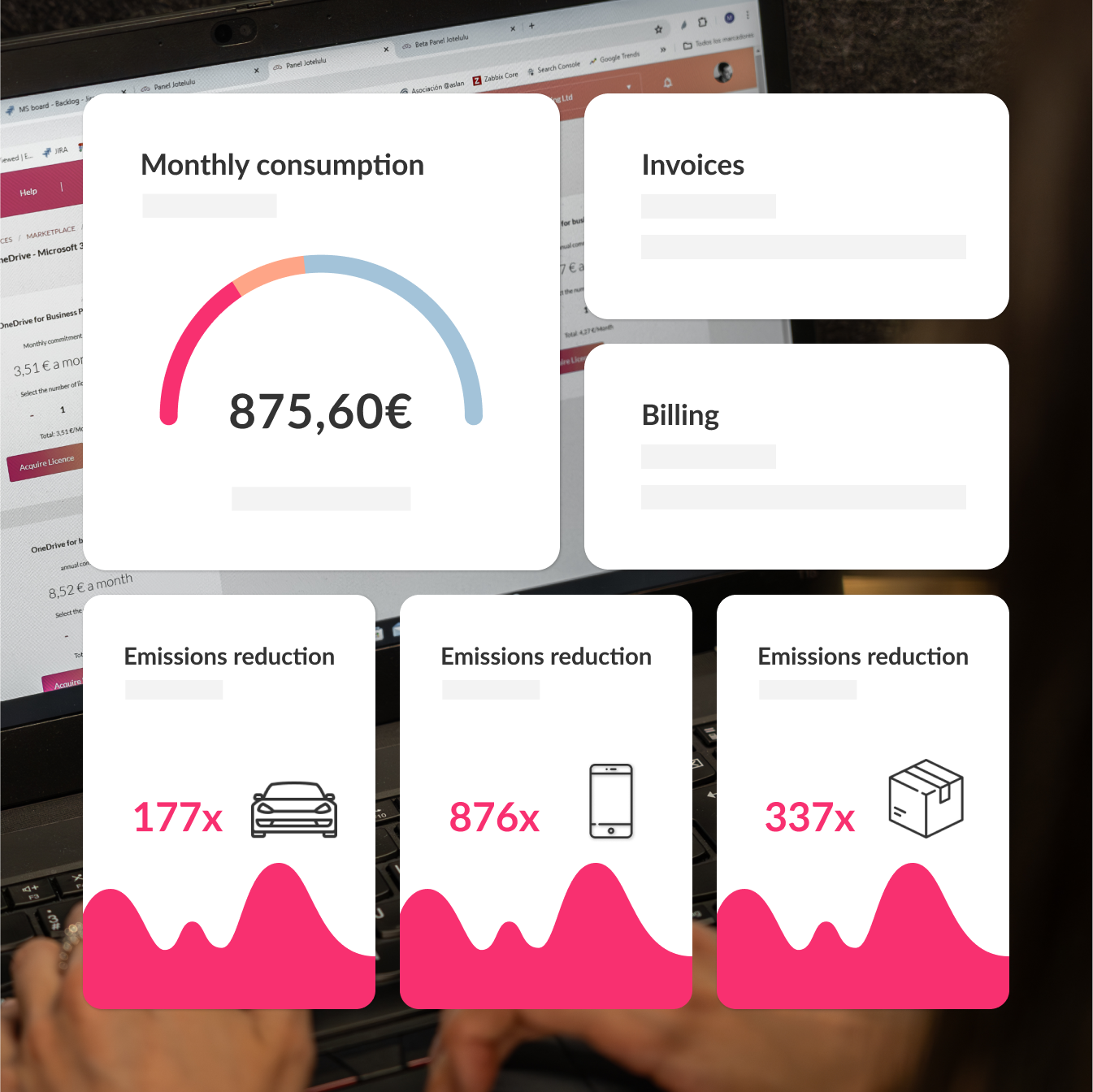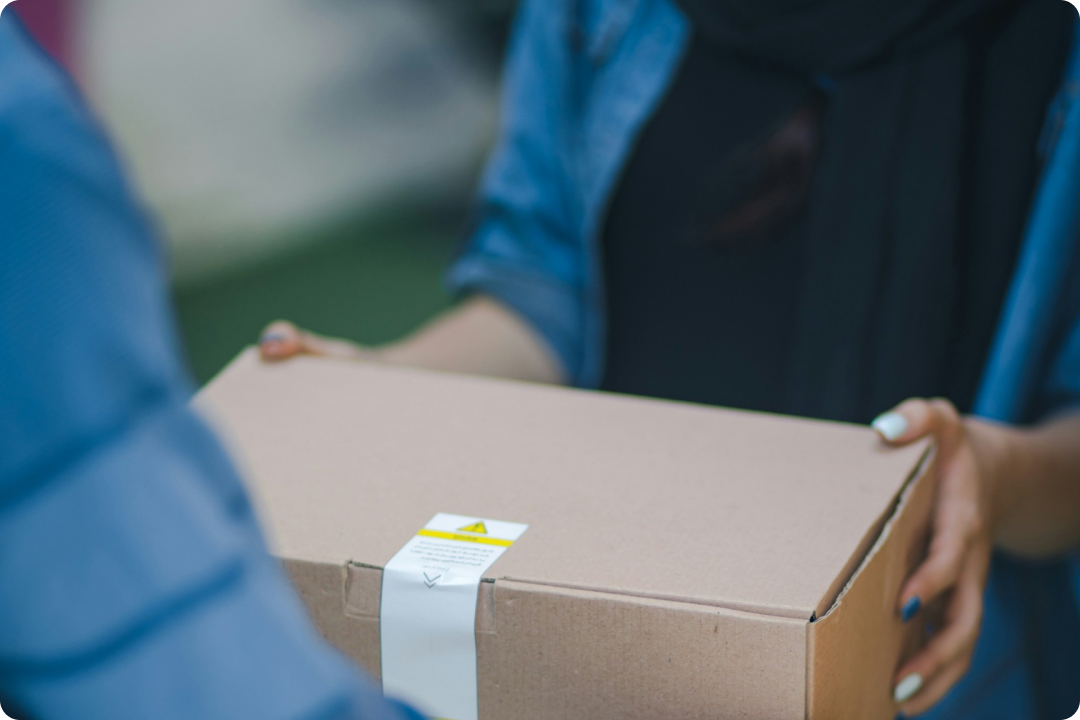


Sustainability
We firmly believe that a more sustainable cloud is possible, and we have adopted a number of strategies to achieve that goal.
We want to form part of a fairer, more sustainable world.
We work hard to improve in different areas of the business every day. Companies and organisations around the world are becoming increasingly committed to sustainability, and we want to do our bit for a cause that 100% represents the company and its values.
We work hard to improve in different areas of the business every day. Companies and organisations around the world are becoming increasingly committed to sustainability, and we want to do our bit for a cause that 100% represents the company and its values.
We are fully aware of the current situation
Climate change is a global phenomenon that poses a threat to ecosystems, sustainable development and the well-being of people around the world. Fighting climate change requires us all to join together and take immediate action.
Climate change is a global phenomenon that poses a threat to ecosystems, sustainable development and the well-being of people around the world. Fighting climate change requires us all to join together and take immediate action.
We offset our carbon footprint
Many organisations and institutions these days are undertaking voluntary initiatives to calculate the impact of their activities and reduce it. Jotelulu is one such organisation.
Many organisations and institutions these days are undertaking voluntary initiatives to calculate the impact of their activities and reduce it. Jotelulu is one such organisation.
Our goal is to continue growing while reducing our environmental impact
Each year, we perform an exhaustive audit of our carbon footprint to assess our impact and take steps to reduce and offset it. Jotelulu’s goal is to be a carbon-neutral company.
Each year, we perform an exhaustive audit of our carbon footprint to assess our impact and take steps to reduce and offset it. Jotelulu’s goal is to be a carbon-neutral company.

Last year, we were able to offset our entire carbon footprint with the help of Climate Trade through a project dedicated to the protection and use of sustainable forests in Tulancingo, Mexico.
These forests are managed in such a way as to create the right conditions to increase the existing forest mass and, as a result, the biomass and amount of carbon stored. This project also involves waste management, the creation of firebreaks, perimeter protection, pruning and other activities.
This project contributes towards the following United Nations Sustainable Development Goals.

Cloud computing has radically changed the way businesses store and process data. To save money, time and physical space, IT managers are increasingly turning to cloud services instead of managing on-premises resources. This trend is not just having an effect on the way companies operate but also has an impact on energy efficiency, emissions and the environment.
As a cloud platform, Jotelulu offers energy-efficient services. This is something that should be of interest to everyone, and that is why we show the emissions savings associated with using our products in the Usage section on the platform.
If we analyse the energy consumption and emissions associated with cloud services and compare them to traditional in-house services, we can see that infrastructure hosted at data centres (Cloud services) are significantly more efficient that those hosted by a company on site. The architecture and hosting services at a data centre are optimised to improve energy efficiency, make better use of space and reduce hardware costs.
When it comes to the figures, we have carried out an exhaustive analysis using various carbon footprint studies and comparisons to clearly establish the difference (in gCO2eq) between services hosted at a data centre and services hosted in-house. We then take this information and apply it to our own particular circumstances, consumption and types of services.
At Jotelulu, we are firmly committed to improving the environmental performance of our services. To do this, we are currently working to quantify our energy consumption and environmental impact while doing everything we can to improve the efficiency of our hardware, data centres and processes.
Comparative Study on Cloud Computing in Carbon Cost & Energy Consumption
The Carbon emissions of Server Computing for Small (to medium) size organizations
A Comprehensive study on Cloud Green Computing: To Reduce Carbon Footprints Using Clouds
iPhone Xs Environmental Report

Energy Consumption
Our platform needs energy, and we are fully aware of everything involved in producing it and transporting it to our facilities. That’s why we are committed to continuously improving efficiency, so we only use what we need.



